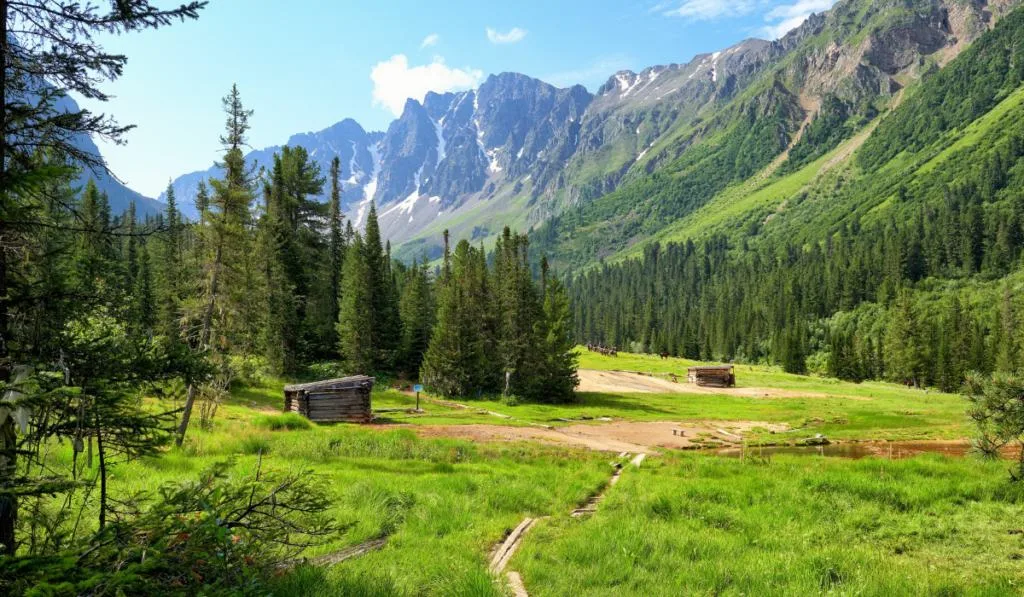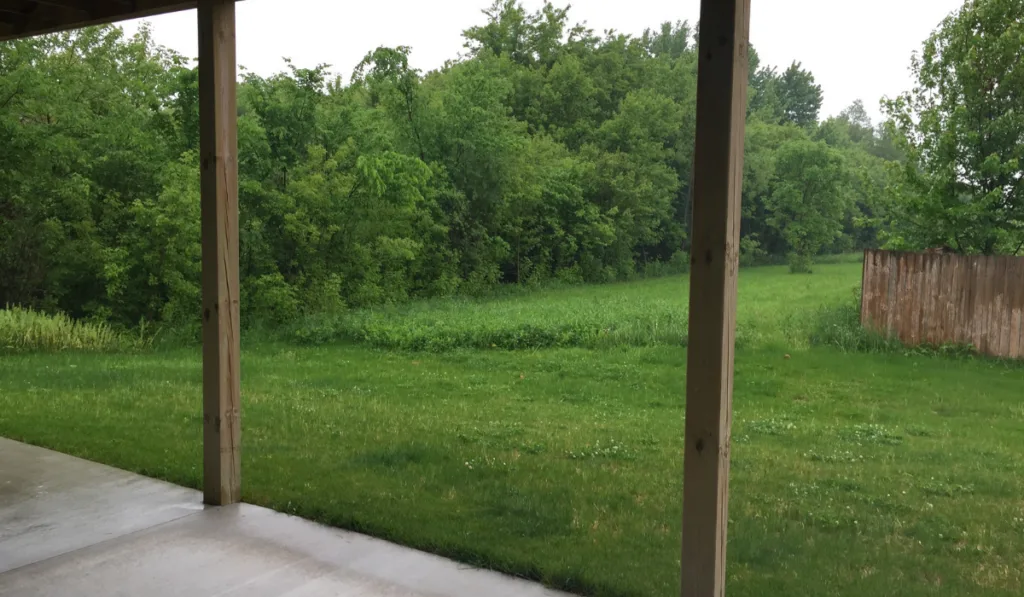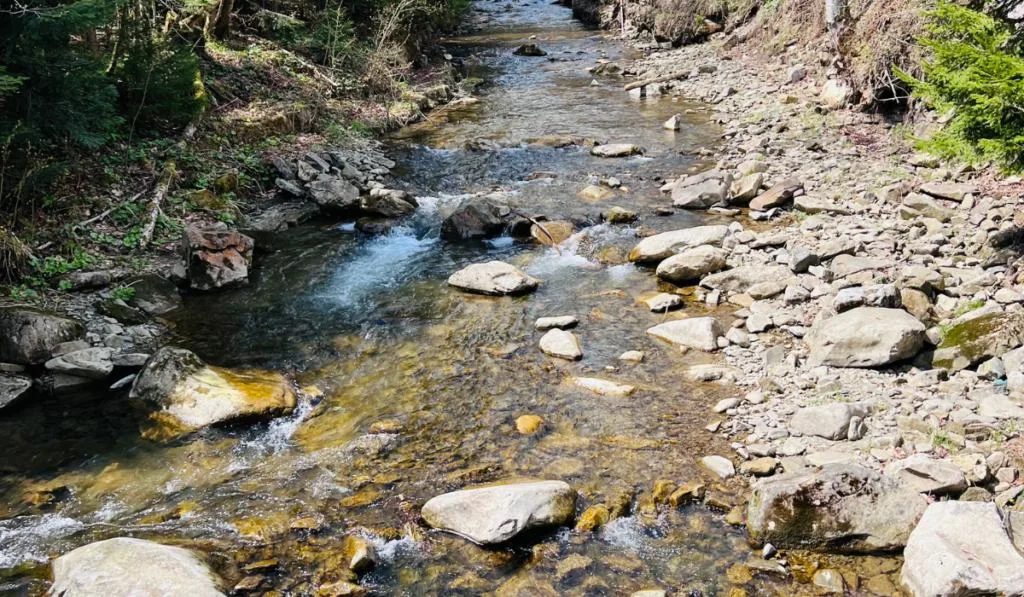Have you ever been slightly interested in a property but were convinced to buy that property because the seller showed you all the natural resources and minerals that come with that property?
Be careful before you fall into that trap! Before you buy a property, because you are keen to start benefiting from all the minerals, determine whether those minerals will belong to you if you purchase the land.
Whether or not a person owns the mineral rights to a property depends on whether the seller conveys that person’s mineral rights. If the mineral rights were sold to someone else, the seller can not sell rights that he does not own anymore. If mineral rights belong to the seller, he can convey them at the time the property is purchased.
If the seller did not specifically list mineral rights as part of the real estate transaction you most likely only purchased surface rights with your home. A knowledgeable real estate attorney can help you research your specific parcel.

Determining whether or not you own the mineral rights to your property requires some investigation because there are a couple of ways in which the mineral rights can belong to someone other than the property owner.
If you don’t wish to pay a lot of money to determine who owns the mineral rights to your property, there are a few things that you can use to guide you on whether or not you own the mineral rights to your property.
Finally, if you do own the mineral rights, are there ways to benefit from them even if you cannot extract the minerals yourself? All of this we explore!
Table of Contents
Do You Own The Mineral Rights To Your Property?
In the United States of America, mineral rights and property rights are not mutually inclusive rights and can be sold separately.
This means that if you purchase a piece of land and become the owner thereof, you do not necessarily possess the rights to all the minerals hidden beneath your land.
This is because there are two rights applicable to land ownership in the United States of America: mineral rights and surface rights. You must possess mineral rights if you want access to the minerals on your property.
By default, the mineral rights to your property are included in the property conveyance. However, if the owner or seller separates these two rights, you have to specify how both rights are conveyed.
There are various ways an owner can separate all the mineral rights from that owner’s land from the surface rights to that land.
It is important to know this because if any of these situations apply to you, you will know whether you own surface rights, mineral rights, or both.

Below are some ways in which an owner of a property can separate the two rights:
- If the owner decides to convey (by way of selling or any other form of transferring) his or her land but decides to retain their mineral rights to the property. To do this, you must make sure that you state somewhere in the deed (that conveys the land to the purchaser) that the seller reserves all the rights to the minerals of the property.
- Another way the seller can split the land from the minerals is to do the opposite, as was stated in the previous point: the seller can convey the mineral rights to the property but reserve the right to retain the land. If this is the case, a separate mineral deed must be issued by the seller to the purchaser of these mineral rights.
- The final way in which a seller can separate the rights to the land and the rights to the minerals on that land is to convey the land and the rights to the minerals to two separate purchasers.
It is important to note that you can only sell what you own. Thus, if you only own the rights to the land, you can only convey those rights once you decide to sell the land.
It is something to look out for because consecutive deeds made after the mineral rights and property rights are split do not refer to the mineral rights or the fact that they are omitted!
Thus, be careful if you buy the property – if you fall in any of the three categories above, you might discover that, even though it was not mentioned in the contract, you do not own the rights to the minerals on your newly purchased property!
Signs That You Or Someone Else Owns The Mineral Rights On A Property
If you are not sure whether or not you own the mineral rights to a property but you are still curious to find out, it can sometimes be a very difficult (and costly) process to find the person/company that does own the mineral rights to your property.
If you do not wish to pursue the costly process of determining who, if not you, owns the mineral rights to your property, here are things you can look at for that can (at the very least) give you an indication if either you or someone else might own the mineral rights property.

Signs That You Probably Own The Mineral Rights To Your Property
Removing underground minerals is a very large expense and not incurred easily unless there are very valuable materials and abundance thereof beneath your land.
Thus, if you do not live in an area that has been used, historically, for the extraction of a specific mineral, chances are high that no one else owns the mineral rights to your property.
This is because no one else would have bothered to make an effort to remove those materials and, thus, it is unlikely that the mineral rights and property rights were ever separated to convey the mineral rights to someone else.
Furthermore, legislation in the United States of America prohibits (for the most part) persons in possession of the mineral rights from damaging or interfering with the usage of homes or other land improvements while extracting these minerals.
If you find yourself living in a densely populated area, the chances are that you (and no one else) own the mineral rights to your property.
In some rural areas, it is common for sellers to state whether or not mineral rights convey with the property.
Signs That Someone Else May Own Mineral Rights To Your Property
On the flip side, there is a chance that if you live in an area where mineral extraction and exploitation are very common, you probably do not own the mineral rights to your property.
Logically, if you live in an area where, for example, you see oil rigs around every corner, the chances are high that you might find yourself not owning the mineral rights on your own property.
This is because the chances that someone separated property rights from mineral rights become infinitely higher to allow someone with resources to come and extract those precious minerals.

How to Know if You Own The Mineral Rights to Your Land
Unless your sale specifically included mineral rights in the terms of the sale, you should assume you are buying the land without them unless and until you or the seller can confirm the rights to the property have not been previously sold.
If this is a major concern for you the best thing to do is consult a real estate attorney who understands mineral rights laws and can perform the research for you or direct you to someone who can.
How Can You Benefit If You Do Own The Mineral Rights To Your Property?
If you do own the mineral rights to your property, there are two routes you can go if you do not have the capacity to extract the minerals on your property but wishes to benefit from them nevertheless:
- You can sell your mineral rights
- You can lease your mineral rights
Whether you want a large sum of money or constant, smaller returns on a continuous basis, that will determine whether you should sell or lease your mineral rights. This decision is solely up to you and what your needs are.
Conclusion
The long and the short is that depending on what previous sellers did to the surface and mineral rights, that will directly affect whether or not you possess those mineral rights.
If the mineral rights were sold to someone else before you acquired the property, you would no longer possess those mineral rights.
If the mineral and surface rights were not split in any manner, the purchaser, by default, becomes the owner of the mineral rights.
If you do indeed have mineral rights, do not let time go by without making proper use of them!
You do not require a mining company before you can make a quick buck out of the minerals on your property – lease them or sell them!
